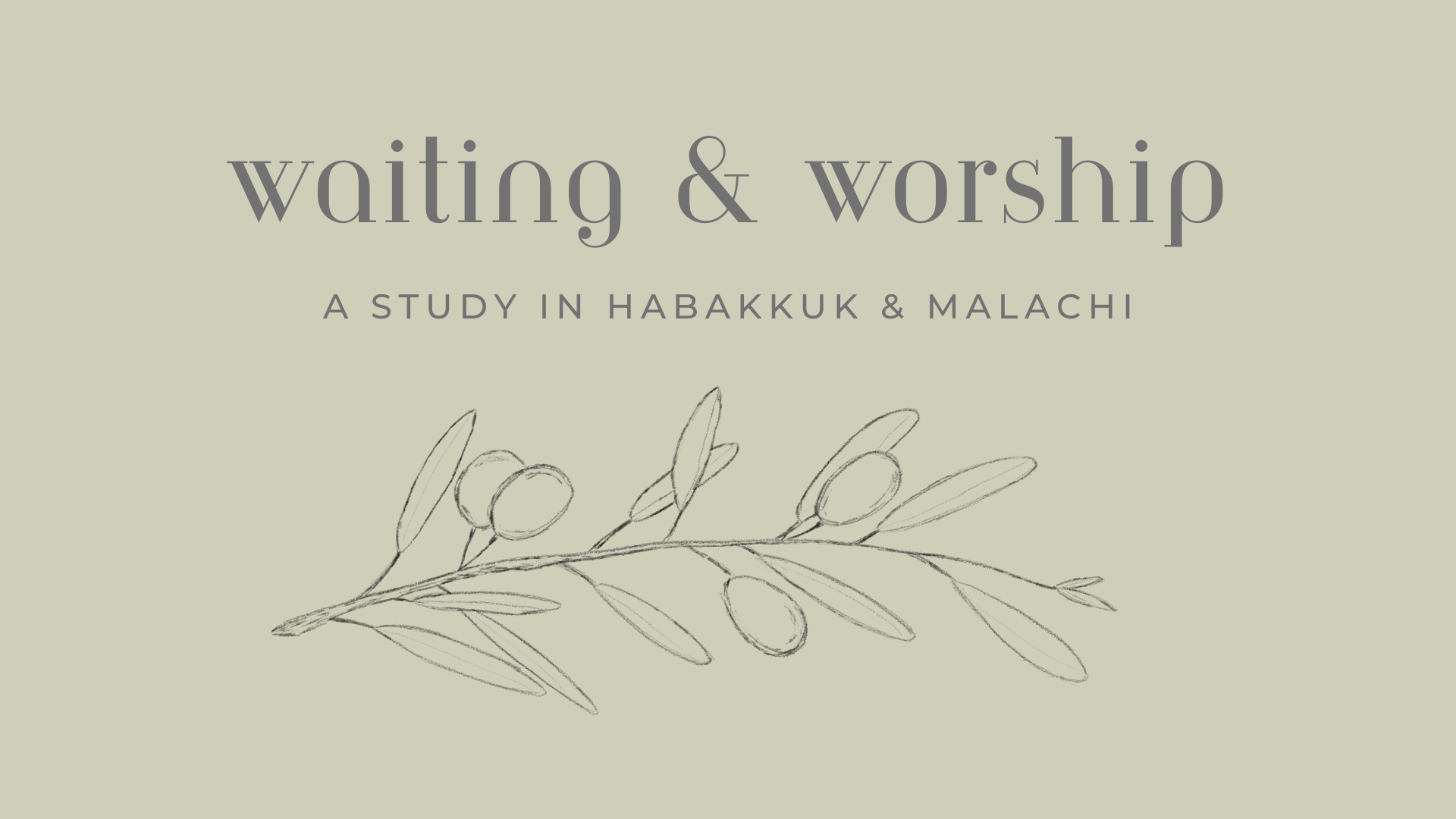
Study Guide AND WORSHIP BOOKLET
Download the Worship and Waiting Study Guide PDF and the Worship Booklet to enhance your personal study by clicking below.
Series Introduction
We live in a world overflowing with noise and distraction. The constant barrage of information, the endless to-do lists, and the pressures of daily life can make it feel impossible to quiet our minds and connect with something deeper. For many, waiting on God and maintaining a genuinely repentant and worshipful heart are among the most challenging aspects of our spiritual journey. Yet, during this chaos, there are voices that calls us to stillness, to patience, and to a deeper devotion. This winter, we invite you to join us on a journey through the words of two prophets who spoke into the very heart of this struggle: Habakkuk and Malachi.
Habakkuk
The book of Habakkuk is written in poetry. As such, you will notice that we will look a great deal at things like figures of speech and the emotion that the author is trying to evoke in us as we read. Sometimes it can feel barbaric to break down poetry like this, but we find that the better we become at this process, the more we will notice these things intuitively, allowing us to enjoy the poetry all the more. As you study the book of Habakkuk, we hope you feel the struggle with God’s justice and Sovereignty, which is good, even when it makes us uncomfortable.
Malachi
The book of Malachi is written as a discourse, much like the essays we all wrote in school. As such, we will ask questions that help us to see the logical progression of thought, repeated words and ideas, and the overall argument of the book. As we read Malachi we will find something quite different from Habakkuk. Malachi is far more direct in how he writes. Where Habakkuk wants us to feel God’s comfort by reminding us of His just judgment of sin, the book of Malachi is seeking to convict us of our sin and call us to righteousness.
Over the next seven weeks, we will gather together to explore the words of these prophets, to grapple with our own challenges, and to find encouragement and hope in the quiet spaces of waiting and worship.
